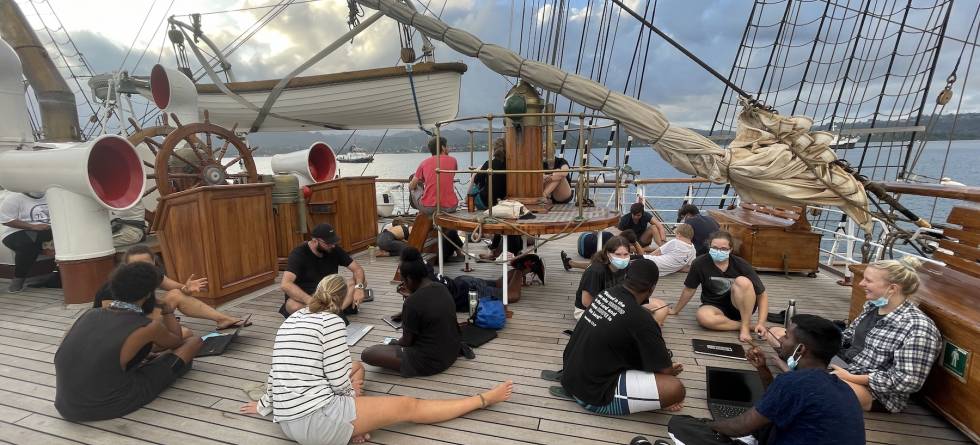I was introduced to the Intergovernmental Panel on Climate Change (IPCC) report during my studies, as it was often mentioned by my lecturers and peers. Once introduced to this report, I also noticed that the IPCC report is often written about in the media, covered in the news, and referred to in debates. It became clear to me that this report is the report for those interested in the science behind climate change.
Now, I am here in the South Pacific, onboard Statsraad Lehmkuhl, a ship I have only admired from afar. Together with a group of PhD students from the Norwegian research school CHESS, I am participating in teaching sessions about the IPCC report for the students onboard the ship.
The mix of cultural backgrounds and disciplines of the students makes the sessions very exciting. Our classroom is floating in the blue ocean, led by the wind, swaying with the waves, and it is truly a once in a lifetime experience.
What do you know about the IPCC report?
Our first teaching sessions takes place on deck, in the warm and humid weather. The students work in teams with a topic from the IPCC report, and each team is guided by one of the PhD students. My team’s topic is the report itself: What is it? Who made it? How is it made? Who is it for? What can we find in the report?
My team and I kick off the group work by telling each other what we already know about the report. As I expected, most of the students have heard of it, but they do not know much about it. I was surprised when one of the students from Fiji told me that people from the South Pacific generally have not heard of it – it is not present in the media, and she has not been taught about it in school or university.
It is strange that a report with so much important information about climate change is not more well known, especially for the local communities in the South Pacific, who already feel the effects of climate change, for example through sea level rise. And if we – who are interested in climate and sustainability – do not really know much about this report, how much can we expect the public to know about it?
Inspired by the gap in public awareness of the report, the students came up with ideas about what they wanted to create outreach materials about. I am curious to see their final products of the results of the combined efforts onboard our floating classroom.

